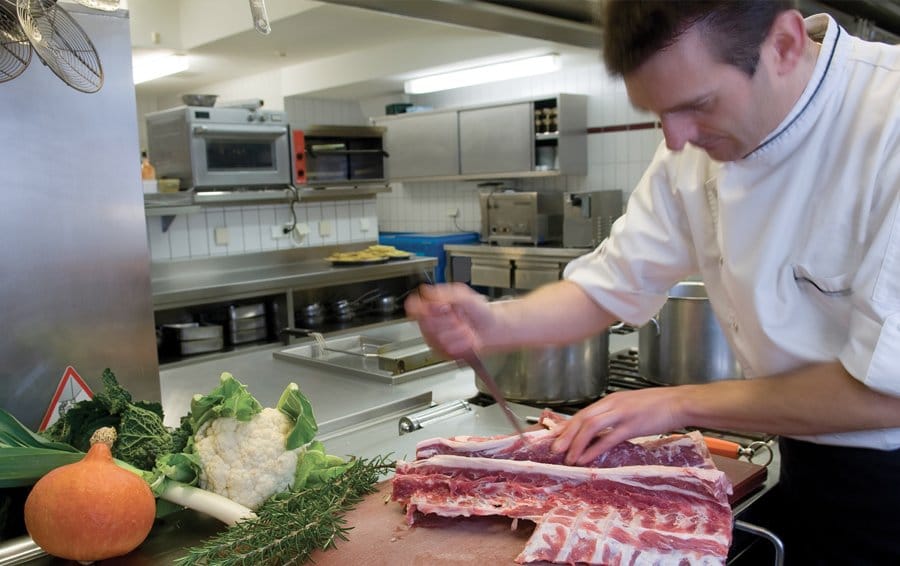Earlier this month, following the announcement of the third national lockdown, primary and secondary schools across the country closed, resulting in 15 million discarded school dinners. We spoke with Philip Simpson, commercial director at ReFood, to discuss what steps should be taken to prevent the landfilling of food in such unpredictable times.
The UK government’s third national lockdown has once again seen primary and secondary school students return to online learning. With perishable meal items and ingredients ordered weeks before being served, schools across the nation have had no choice but to discard tonnes of perfectly edible food.
Unfortunately, in these scenarios, much of this food ends up in landfill. This is a travesty – not just for the lost resources, but also for the resulting environmental implications. When food is sent to rot in landfill, it generates greenhouse gases that are 21 times more damaging than CO2. So, not only is the food itself being wasted, but it is also contributing to climate change.
In increasingly unpredictable times – particularly for the food and hospitality industries – it is critical that the UK manages unexpected food waste using principles from the food waste hierarchy. This will ensure that we make the most of resources wherever possible and minimise the volume unnecessarily sent to landfill.
Diverting unwanted food to those in need should always be the first priority. Working closely with food distribution charities would redirect edible produce to feed hungry people. With the fraction of food that is unfit for human consumption, but still has nutritional value, we should use it as animal food. This is yet another way that we can extract value from discarded food and keep the food supply chain circular.
But what about produce that is unfit for either human or animal consumption? This is where food waste recycling steps in. There is no need to landfill food, it is a highly valuable resource that can be used to create renewable energy and sustainable fertiliser through the anaerobic digestion process.
Anaerobic digestion harnesses the natural decomposition of food to create biogas and a nutrient-rich by-product. The biogas can be combusted to produce electricity or fed directly into the national grid, while the leftover by-product can be used as a sustainable fertiliser – retaining beneficial nutrients and reintroducing them to the beginning of the food supply chain.
ReFood currently operates three food waste recycling facilities across the UK, located in Widnes, Dagenham and Doncaster. Each year, we collect and recycle more than 400,000 tonnes of food waste. Aside from minimising waste and being more environmentally friendly, we have also shown that recycling can be up to 50 per cent cheaper than landfill disposal methods.
While the loss of 15 million school dinners is incredibly frustrating, it is, unfortunately, just a small fraction of the UK’s annual 10-million tonne food waste mountain. It is something we must address collectively, maximising the value of our resources to create a more sustainable nation and society.
We are calling for both the public and private sectors to help fight food waste – including schools – by using the food waste hierarchy rather than simply relying on general waste management methods. While we are encouraged by the shift in public attitude and awareness around food waste, introducing food waste collections across the UK needs to be a priority – particularly in hospitality locations, like school cafeterias.
These lost lunches are an unfortunate consequence of the challenging and unpredictable circumstances that we currently find ourselves in. That is, however, no excuse to contribute to even greater long-term issues. We must maximise the value of natural resources wherever possible, redistributing edible produce and sustainably recycling the unavoidable remainder.






